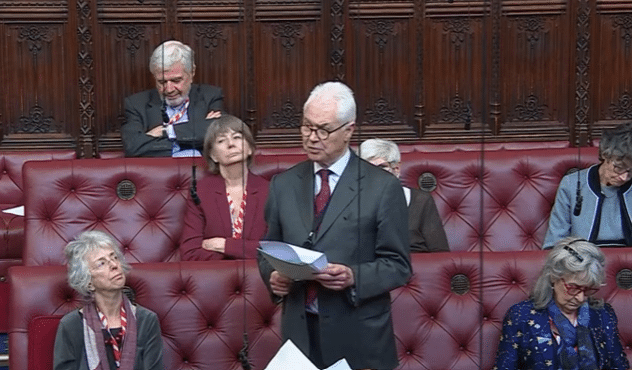Labour Party adopts IER sectoral collective bargaining plan
The Institute of Employment Rights welcomes the adoption of its sectoral collective bargaining proposals by the Labour Party.

Labour today published a new Green Paper that included a promise to deliver Fair Pay Agreements across the economy, negotiated by employer and worker representatives and rolled out to all individuals working in each sector.
This policy is based on the recommendations of the IER’s Manifesto for Labour Law, most of which was adopted by the Labour Party in 2016, and built upon in Professor Lydia Hayes’ book 8 good reasons why adult social care needs sectoral collective bargaining.
“Work should provide not just a proper wage that people can raise a family on, but dignity, flexibility and security. Better pay and more secure work is good for workers, good for businesses and good for the economy.,” Angela Rayner, Shadow Secretary of State for the Future of Work, said.
She added: “Fair Pay Agreements will drive up pay, improve conditions in the workplace and stop bad bosses from exploiting their workers and driving down pay and standards for everyone.”
Andy McDonald MP, Shadow Secretary of State for Employment Rights and Protections, said: “Outsourcing, zero-hours contracts and agency work drive down pay, standards and conditions across our whole economy for everyone.
“It is high time that the key workers who got us through this crisis – and all working people – are given the dignity and security at work that they deserve.”
Professor Keith Ewing, President of the IER, said: “We are delighted that the Labour Party has recommitted to the recommendations put forward by the Institute of Employment Rights in 2016, and adopted at the 2017 and 2019 elections.
“Sectoral collective bargaining is a mainstay of workplace protection in many developed countries and modern research has repeatedly demonstrated it is the single best way to improve wages and conditions.
“Workers in the UK work longer hours in poorer conditions for less pay than their counterparts in countries with a tradition of collective bargaining at sectoral level.
“Because Fair Pay Agreements will bind all employers in the same sector to the same conditions, they will prevent good employers from being undercut by those who exploit their workforce. In contrast, our current system perversely rewards those who treat their workers badly.”
Lord John Hendy QC, IER Chair, said: “We welcome this wise and progressive policy from the Labour Party. It is high time the UK caught up with other developed countries around the world and treated its workers with dignity and respect.
“This plan does not just make economic sense, it could contribute greatly to the quality of our lives. We spend an enormous proportion of our time at work and we should have a say in how we’re treated there. Leisure and family time is also dictated by hours of work, as well as by wage levels, and that reinforces the need for a say through collective bargaining.
“After the experience of the pandemic, more workers have been re-examining their work-life balance and their happiness in their jobs and their employers are coming up short. Low-paid sectors are finding out the hard way that many workers will no longer tolerate poor treatment.
“By introducing Fair Pay Agreements, Labour will give workers the mechanism through which their voices can be heard.”
As recommended in Professor Hayes’ report, the Labour Party says it would begin its rollout of Fair Pay Agreements in the social care sector, where urgent reform is needed to repair an ongoing staffing crisis.
Three-quarters of care workers – more than 600,000 people – are paid less than a living wage, 375,000 are on zero-hour contracts, and turnover rates among staff are more than double the UK average at 31%.
Fair Pay Agreements have also been proposed by the New Zealand government, which will introduce a Bill to establish sectoral collective bargaining later in 2021.
Other proposals set out in Labour’s Green Paper include:
- An immediate increase to the minimum wage to at least £10 per hour for all workers.
- The creation of a single status of ‘worker’ for all but the genuinely self-employed so all workers have the same rights and protections, including rights to sick pay, holiday pay, parental leave and protection against unfair dismissal from day one on the job.
- The right to flexible working for all workers as a default from day one, alongside the ‘right to switch off’ outside of working hours.
- A ban on zero-hours contracts and an end to ‘one-sided flexibility’, with all workers having the right to a regular contract and predictable hours, reasonable notice of any changes in shifts of working hours and wages for cancelled shifts paid in full.
- Increasing Statutory Sick Pay (SSP) and making it available to all workers, including the self-employed and those on low wages currently excluded by the lower earnings limit for eligibility.
- Ending fire and rehire.
- Extending statutory parental leave, introducing the right to bereavement leave, strengthening protections for pregnant women, and reforming the failed Shared Parental Leave system.
- Updating trade union legislation so it is fit for a modern economy and so working people have strengthened rights and are empowered to organise collectively.
- Overhauling enforcement of rights and protections by establishing a single enforcement body to enforce workers’ rights, inspect workplaces and bring prosecutions and civil proceedings on behalf of workers against bad employers relating to health and safety, minimum wage, worker exploitation and discriminatory practices.
- Introducing mandatory ethnicity pay gap reporting to mirror gender pay gap reporting, and a new requirement on employers to report and eliminate pay gaps through the implementation of action plans to eradicate inequalities in the workplace.







